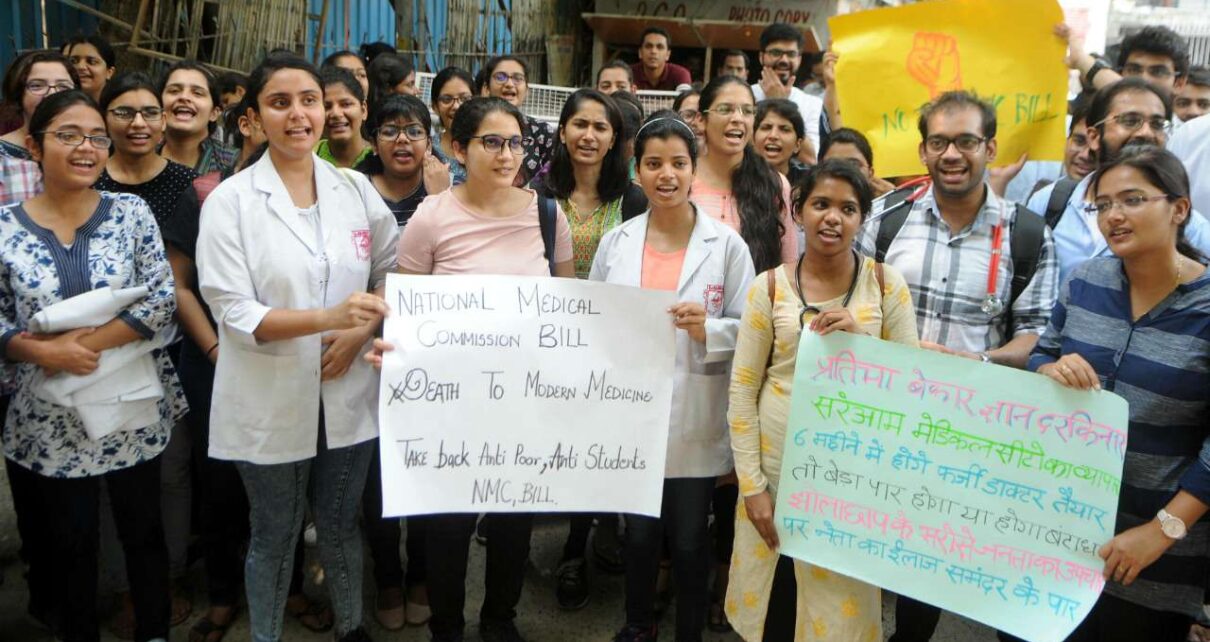The National Medical Commission (NMC) came into force from Friday, as the Centre repealed the nearly 64-year-old Indian Medical Council Act, 1956, and dissolving all its bodies such as the Medical Council of India (MCI) and Board of Governors (BoG), through a gazette notification.
Last year, the National Medical Commission Act 2019 was passed by both houses of the Parliament after facing stiff resistance from doctors.
The members of NMC
Dr Suresh Chandra Sharma, retired HoD, ENT, All India Institute of Medical Sciences, New Delhi, has been appointed as the chairman of the NMC for a period of three years, while Dr Rakesh Kumar Vats, ex-secretary general, Board of Governors – MCI, has been appointed as the secretary of the NMC for a period of three years. The NMC will consist of 10 ex-officio members and 22 part-time members appointed by the Centre.
To ensure transparency, the members will have to declare their assets at the time of joining and demitting the office along with declaring their professional and commercial engagement or involvement.
How will it operate and why was it formed?
The NMC will frame policies and coordinate activities of its four separate autonomous boards: under-graduate medical education; post-graduate medical education; medical assessment and rating; and ethics and medical registration.
According to the government, the MCI had failed in almost all spheres and became highly ineffective. The NMC Act is a progressive legislation which will reduce the burden on students, ensure probity in medical education, bring down costs of medical education, simplify procedures, help to enhance the number of medical seats in India, ensure quality education, and provide wider access to people for quality healthcare.
Important points
- The common final year Bachelor of Medicine and Bachelor of Surgery (MBBS) examination will now be known as the National Exit Test (NEXT), according to the new medical education structure under the NMC. This single examination will grant: a license to practice medicine, an MBBS degree, and entrance to postgraduate courses.
- As one of the mandates of the NMC is to look at the cost of medical education, it will provide for a common entrance examination for MBBS (NEET) along with common counselling for all medical institutions in the country. According to the health ministry, this provision will prevent seat blocking in parallel counselling processes and eliminate the need for students to approach multiple colleges and take part in multiple counselling processes for admission. This will save students and their families from unnecessary physical and financial trauma.
- There is a provision for common counselling for entrance to PG courses also. Students will be able to get admission to seats in all medical colleges and to institutes of national importance like AIIMS, PGI Chandigarh and JIPMER through a single counselling process.
- The Act does not impose any restriction on the number of attempts at NEXT examination.
- Another feature of the NMC Act is that it provides for the regulation of fees and all other charges in 50% seats in private colleges as well as deemed to be universities. According to the government, nearly 50% of the total MBBS seats in the country are in government colleges, which have nominal fees. Of the remaining seats, 50% would be regulated by NMC. This implies that almost 75% of total seats in the country would be available at reasonable fees.




